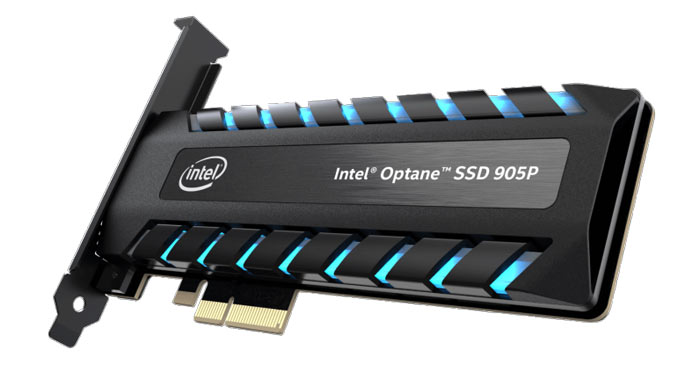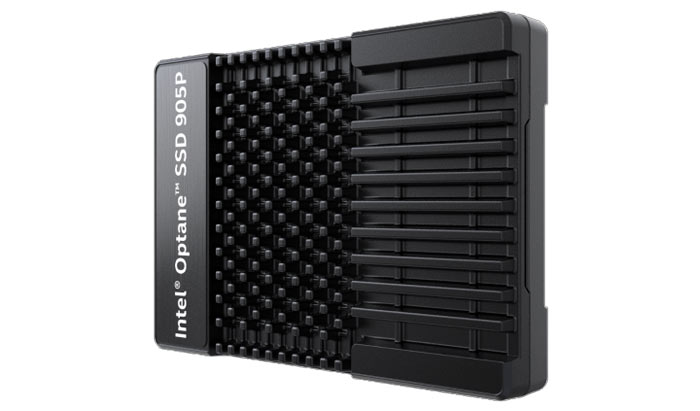Intel has unveiled a new series of Optane technology SSDs aimed at demanding storage workloads in desktops and workstations. The new Intel Optane SSD 905P is available in PCIe slot and U.2 formats, and in maximum capacities of 960GB and 480GB respectively. On the official product pages, Intel claims “breakthrough performance” for read/write and access. Meanwhile Tom’s Hardware agrees with the Intel assertions and in its short time doing tests on the new drive (960GB PCIe card version) come to the conclusion that it is “the fastest SSD ever”.

Giving background info on the new Optane SSD 905P series, Intel claims the drives make use of the unique attributes of 3D XPoint memory tech to provide low latency, and high throughput at low queue depths. For example “exceptional random storage performance of up to 575K/550K IOPs (4K random reads/writes), and is complemented with low latency of less than 10μs,” says Intel’s official product page.
Looking over the preliminary test data at Tom’s Hardware you can see that the Optane SSD 905P PCIe card (960GB) is the fastest SSD ever to go through that publication’s labs. It edges past the Optane 900P, providing 1669 MB/s compared to 1498 MB/s, easily eclipsing rival brands which plateau under the 800 MB/s level.
In addition to their speed, Intel crows about the Optane drive durability. Claiming industry leading performance the Intel Optane SSD 905P is rated for 10 full drive writes per day, great for use on demanding workloads and huge projects.
The MSRP of the 960GB PCIe card version of the Intel Optane SSD 905P is US$1,200, meanwhile the top capacity U.2 form factor drive (480GB) has an RRP of US$599. Buyers get a five year warranty.

- Model Name: Intel Optane SSD 905P Series
- Capacity: Half Height Half Length (HHHL) Add-in-Card: 960GB 2.5” x 15mm, Small Form Factor U.2: 480GB
- Memory Media: 3D XPoint memory media
- Bandwidth: Sustained Sequential Read/Write: Up to 2600 / 2200 MB/s
- IOPS: Random 4KB Random Read/Write: Up to 575,000 / 550,000 IOPs
- Read/Write Latency: <10 μs /< 10 μs
- Interface: PCIe 3.0 X4, NVMe
- Form Factors, Height, and Weight: HHHL AIC @ 68.9mm / 17.2mm / 168mm up to 230 grams, 2.5” U.2 @ 15mm / 70mm / 101mm / up to 140 grams
- Life Expectancy: 1.6 million hours Mean Time Between Failures (MTBF)
- Lifetime Endurance: 10 Drive Writes per Day (DWPD)






